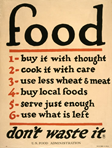| Ticket Prices for Shanghai Expo | ||||
| Time Types | Pre-sale(预售)Ⅰ Mar. 27,2009 ~Jun. 30,2009 | Pre-sale Ⅱ Jul. 1,2009 ~Dec. 31,2009 | Pre-sale Ⅲ Jan. 1,2010 ~Apr. 30,2010 | Expo Session(期间)May. 1,2010 ~Oct. 31,2010 |
| Peak Day Ticket (指定日门票) | ¥170 | ¥180 | ¥190 | ¥200 |
| Standard Day Ticket (平日门票) | ¥130 | ¥140 | ¥150 | ¥160 |
| 3-Day Ticket | (无) | ¥400 | ||
| 7-Day Ticket | ¥900 | |||
| Evening Ticket | N/A | ¥90 | ||
- 1.
If Joe wanted to buy the cheapest ticket for Peak Day,he could book(预定)one during .
- A.Pre - sale Ⅰ
- B.Pre – sale Ⅱ
- C.Pre – sale Ⅲ
- D.Expo Session
- A.
- 2.
On March 1,2010,Sue bought two Standard Day tickets for her parents. She paid for
them- A.¥380
- B.¥300
- C.¥260
- D.¥180
- A.
- 3.
It cost Thomas ¥160 to get a ticket for Standard Day.He probably bought it on .
- A.April 23,2009
- B.August l,2009
- C.February 2,2010
- D.May 20,2010
- A.
- 4.
Kathy spent 900 yuan on a ticket for Shanghai Expo.Her visit can last days.
- A.one
- B.three
- C.seven
- D.ten
- A.
- 5.
Visitors to Shanghai Expo could buy tickets only after May 1,2010.
- A.morning
- B.afternoon
- C.evening
- D.Midnight
- A.
| Lost My English dictionary. My name is Grace. Please call 233-4105 or look for me in Room 405 | Shopping List(购物单) * 2 pencils * A pencil sharpener * New CDs of Jay Chou Lily |
| Bill Smith English teacher No. 9 Middle School of Nanjing Tel: 668-0796 E-mail: bill999@sina.com | Name: Tom Cooper Age:21 Tel:9873-8769 Mobile: 1596872023 E-mail:Tom. C@yahoo.cn Address: 321 Yongfu Road |
- 1.
If you find Grace’s dictionary, you can call
- A.668-0796
- B.233-4105
- C.1596872023
- A.
- 2.
Who lives(居住) in Nanjing?
- A.Lily
- B.Bill Smith
- C.Grace
- A.
- 3.
Lily needs of Jay Chou
- A.three pencils
- B.a red jacket
- C.new CDs
- A.
- 4.
Bill Smith is a in No. 9 Middle School
- A.student
- B.teacher
- C.worker
- A.
- 5.
What’s Tom Cooper’s address?
- A.321 Yongfu Road
- B.bill999@sina.co
- C.321 Lin He Road
- A.
New Year is coming. Do you have any plans for yourself? Let’s look at the following kid’s New Year’s plans.
| Joe | Many classmates call me “Fat Joe”,So I think I really need to lose weight next year. I must eat less pizza with cheese though it is difficult for me to do so. |
| Silly | I want to take Chinese lessons next year, because I ’m very interested in Chinese culture ,history and food. |
| Tony | I’ll follow the doctor’s advice :eat more fruit and vegetables ,and say goodbye to my favorite French fries and hamburgers . I believe I ’ll be healthier. |
| Alice | I’m a Canadian student,I want to take a trip to Japan for my winter Holiday ,I’d like to eat sushi(寿司)and noodles there. |
- 1.
Joe likes eating very much
- A.fruit
- B.pizza
- C.French fries
- D.hamburgers
- A.
- 2.
is interested in Chinese culture ,history and food
- A.Alice
- B.Silly
- C.joe
- D.Tony
- A.
- 3.
Alice is going to take a trip to
- A.China
- B.Canada
- C.Japan
- D.Australia
- A.
- 4.
have health problems
- A.Joe and silly
- B.Silly and Tony
- C.Tony and Alice
- D.Joe and Tony
- A.
- 5.
Which of the following is True?
- A.Joe is happy to get the name “Fat Joe”
- B.Silly is tired of the Chinese lessons now
- C.Tony will take his doctor’s advice on food
- D.Alice is interested in Japanese culture ,history and food
- A.



